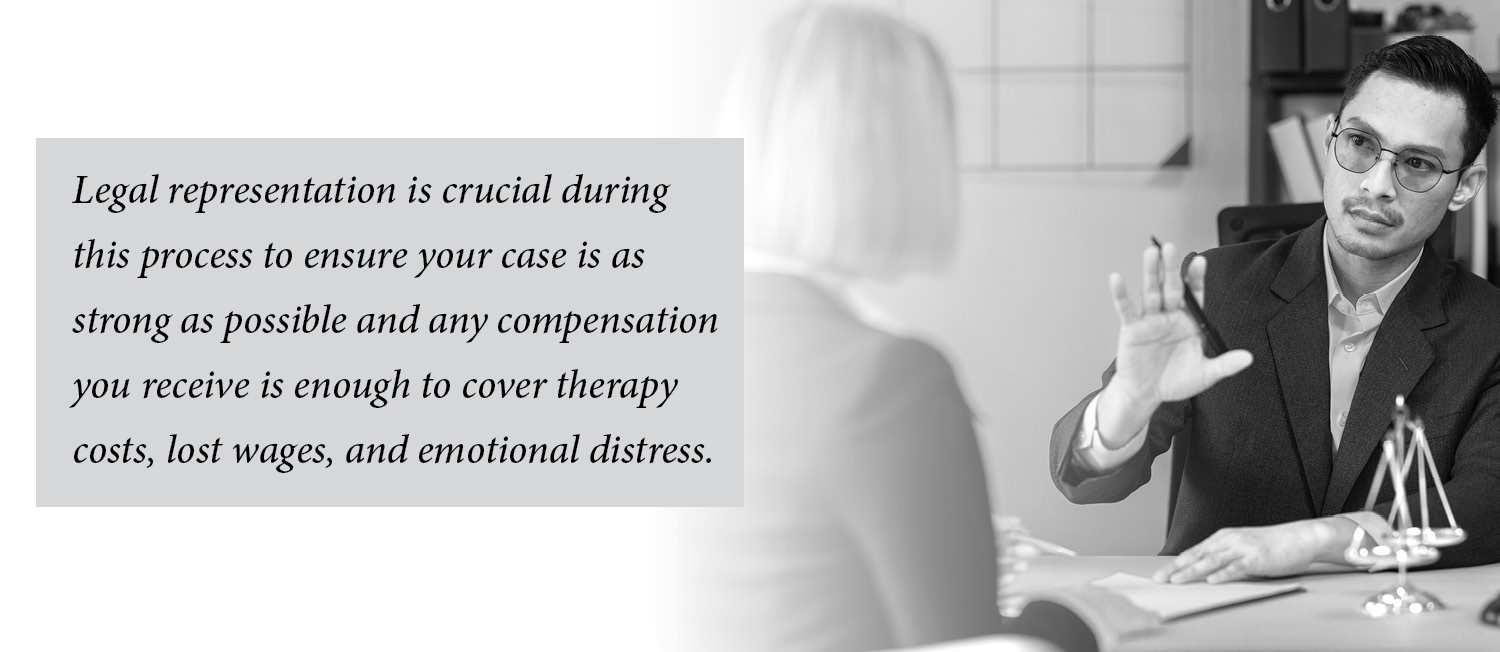Car accidents can leave lasting effects, not just on your body but also on your mind. While many people associate accident-related injuries with broken bones or whiplash, emotional trauma like Post-Traumatic Stress Disorder (PTSD) is a very real and often overlooked consequence. PTSD can develop after a particularly violent or shocking accident, but its signs are not always immediately apparent. Recognizing and addressing this condition is important, as a failure to identify the symptoms can lead to a lifetime of impairment, and can potentially negatively impact your legal case.
What is PTSD and How Do Car Accidents Cause it?
Post-Traumatic Stress Disorder (PTSD) is a mental health condition that can develop after experiencing or witnessing a traumatic event. While commonly associated with combat or natural disasters, car accident trauma often leads to PTSD. The emotional and psychological impact of a sudden, violent crash can be severe, leading to lasting mental health challenges.
Car accident-related PTSD often develops when the mind struggles to process the traumatic event, triggering intense fear, anxiety, or flashbacks. These feelings can persist long after physical injuries heal, affecting daily life. It’s important to note that PTSD doesn’t always emerge immediately; symptoms may appear weeks or months after the incident. Because the signs can be subtle and slow to develop, PTSD from a car accident can be difficult to diagnose and prove. This is why it’s essential for individuals to be aware of the risks and seek appropriate care if needed.
Recognizing the Symptoms of PTSD After a Car Accident
PTSD symptoms following a car accident can vary widely. Common signs include:
- Flashbacks, or intrusive memories, where the person relives the traumatic event or has nightmares about the crash.
- Avoidance behaviors, such as refusing to drive or steering clear of locations associated with the accident.
- Heightened anxiety, irritability, or difficulty concentrating.
- Increased heart rate or sweating when thinking about the accident.
In some cases, the emotional distress may not appear until weeks or even months after the accident, leading people to dismiss the connection between their trauma and the event.
Making a Claim for PTSD from a Car Accident
If you believe you’ve developed PTSD as a result of a car accident, you may be able to include it as part of a broader personal injury claim. While mental health conditions like PTSD can be more difficult to prove than physical injuries, they are still recognized in personal injury cases.
To make a claim of PTSD, it’s essential to gather substantial evidence, including medical records, psychological evaluations, and documentation of how the condition has impacted your daily life. Witness statements and expert testimony from mental health professionals can strengthen your case. Legal representation is crucial during this process to ensure your case is as strong as possible and any compensation you receive is enough to cover therapy costs, lost wages, and emotional distress.

How PTSD Fits into a Broader Personal Injury Claim
PTSD is typically included in a broader personal injury claim, encompassing physical and emotional damages. When you file a claim after a car accident, you will often be seeking compensation for medical bills, lost wages, and “pain and suffering.” This legal term refers to both the physical discomfort and the emotional distress caused by the accident, including conditions like PTSD.
Compensation for PTSD in personal injury cases can cover therapy and treatment costs, lost income due to inability to work, and the overall emotional toll of the car accident trauma. It’s essential to demonstrate how PTSD has impacted your ability to function in daily life, whether it’s difficulty driving, maintaining relationships, or even performing routine tasks. By building a comprehensive claim that accounts for the accident’s physical and psychological consequences, you improve your chances of receiving a fair settlement that addresses all aspects of your injury.
Proving PTSD From a Car Accident in Court
Proving PTSD in court can be more difficult than establishing physical injuries because emotional trauma is less visible and often subjective. Unlike with a broken bone, no X-ray can definitively show PTSD. Instead, plaintiffs must rely on detailed medical records, psychological evaluations, and expert testimony to demonstrate the mental and emotional impact of the car accident.
One of the main challenges is the burden of proof. You’ll need to show that the PTSD was directly caused by the accident and not by other pre-existing conditions or unrelated life events. Insurance companies and defense attorneys may argue that the symptoms are unrelated to the accident or exaggerated. Expert testimony from psychologists or psychiatrists is crucial in these cases, as they can provide professional insight into the diagnosis and its connection to the accident. The process can be lengthy and complex, but with the right legal support, it is possible to successfully prove a PTSD claim.
How Kane Personal Injury Helps with PTSD Claims
PTSD is a serious and often debilitating condition that can follow in the wake of a traumatic car accident. While the symptoms may be subtle and delayed, they can have a profound impact on your mental health and everyday life. If you suspect you’re suffering from PTSD, it’s crucial to seek medical help and consider the legal options available to you. Don’t hesitate to reach out to a legal professional who can guide you through the complexities of making a PTSD claim and help you secure the compensation you deserve for both your physical and emotional suffering. If you suspect you or a loved one has PTSD, contact us today for a free, no-obligation consultation.
